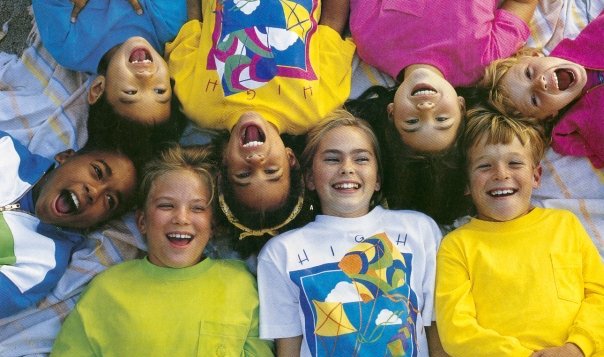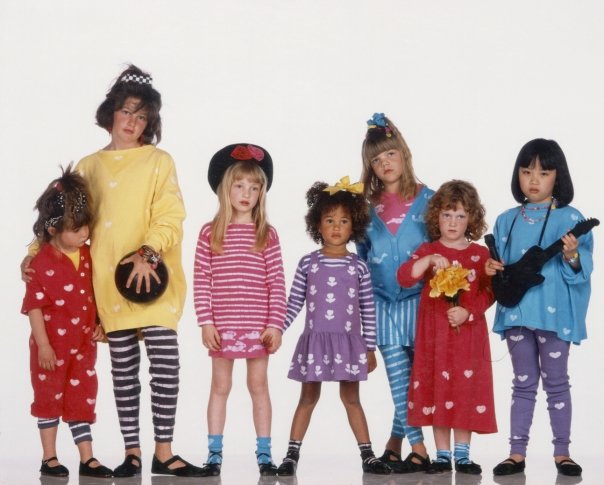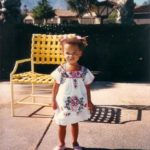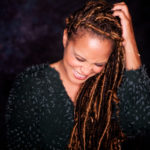
Often, opening up to the world about my life and story can feel like a daunting task, but maybe not for the reasons you might think. As I grow and learn more about myself and the life I’ve been so blessed to live, I realize that we’re all put on this earth for several purposes. One of those, I truly believe, is to help others through our own experiences. Sometimes doing that means getting emotionally naked and putting your vulnerability on display. In this age of Trumpism (no matter what side you fall on) and heightened racial tensions, I find myself at a unique intersection of many perspectives. Through them, I hope to begin important conversations. This blog happens to be one of them.
I was thirteen and starting public school. Up until that point I’d attended a private school that was located in an affluent district of the city and filled with an extremely diverse student population. So diverse was my neighborhood that I held regular invites to bat mitzvahs and other elaborate cultural parties. My friend group included every race, religion and nationality you could imagine. Such divergence meant that one’s wealth or lack thereof could not be determined by the color of one’s skin. In this geographical space, statistics pointing towards any income disparity between races simply didn’t apply. My neighborhood and school seemed to be immune to the surface troubles of the rest of the world… or so it appeared to my untrained teenaged eye.
Perhaps it was because of this perspective that many of my firsts came as such surprises to me, when other people seemed unfazed by them. So, on my first day at this school a group of kids and I were hanging out after the school day ended. I was preparing to go to track practice when another student, a black male I recognized from one of my classes, walked up to me. He greeted me.
“Hey, you were in my 5th period math class. Nice to meet you. Are you going to the BSU meeting this afternoon?” I was so confused. He was nice enough, and I appreciated what looked like the potential start of a new friendship. But what was he talking about? Did I miss something in class? I panicked.
“Oh crap! Did Mr. Jones tell us? Was it on the syllabus? Is the whole class going? I had no idea! What time are we supposed to be there?!!”
Now HE was the one confused. A look of amazement washed over his face, and I realized I’d missed a step somewhere. He paused and explained.
“No no no, it’s not an assignment, it’s BSU: Black Student Union.”
I rolled my eyes. I was upset. “Black student what? Are you asking me this because I’m black?”
He stuttered a bit, embarrassment enveloping him by the minute. “Did you ask the white classmates?” I asked. “Can they come?”
He sheepishly answered, “Sure. But… uh…”
I was offended. In my world, there was no separation based on race. No one asked me things or assumed what my interests were because of my skin color. Of course, as an adult, I understand it much more; but back then? It just didn’t exist. This whole exchange between my black classmate and me felt discriminatory.
My experiences as a biracial person have always involved the idea of compartmentalizing. Living in Los Angeles has taught me some perplexing lessons, many I’m still trying to wrap my head around. My white friends have generally been okay with me having friendships with black people. On the flip of that, friends in the African-American community haven’t always been as accepting of my desire to have friendships with white people. I’ve never understood the reason for any of it. After examining what happened to thirteen-year-old Breegan, I have some ideas.
I know now that privilege exists in many different forms. Some enjoy privilege because of the color or their skin; others, because of their economic standing. Even first and last names can come with a degree of privilege. As I reflected on my childhood, I realized that the residents of my neighborhood and adjacent areas enjoyed privilege because of their socio-economic class. It allowed certain issues to feel invisible. Some of the social injustices that were striking other areas were not as prominent there. While my world was far from utopian, tension between races wasn’t as pervasive as the stories I’d see on the evening news each night. Brown skin wasn’t accompanied by a “less-fortunate” label. In fact, many of my black friends were much wealthier than white friends living in the same area.
I’m aware that for many, this all sounds crazy. It’s a foreign concept — not being categorized one way or another based on complexion. It was my experience, though, and it has led me to not base everything on race, not even with my own kids.
Some introspection as an older, wiser Breegan has allowed me to delve deeper into what was truly happening back then. If you read my story from a superficial level, it’s easy to dismiss it as naivete or something even worse. A more concentrated focus on the impact of those formative years led to a mini epiphany for me regarding the origins of racial views we all hold. Many of us fail to recognize how those years from 0-13 affected the way we view race. We have all been fed some opinion at one point or another about it. If, as adults, we can take a moment to reflect on what those gifted opinions and sentiments have meant to our development, we can make the choice to adopt or alter them in a way that best suits the life we desire to live.

It’s a tough topic, and I’ll be honest: I don’t like that it divides us. I know it’s a reality we all have to face, but if possible, even in small ways, I am still trying to show my boys through example that their interests, their friendships and even their successes don’t have to rely or be determined by race. It won’t always be an easy philosophy to adopt, but it will be worth it.
What did your 0-13 years teach you about race? Have you stuck with those opinions or challenged them? Let’s start the discussion.




replies (0)